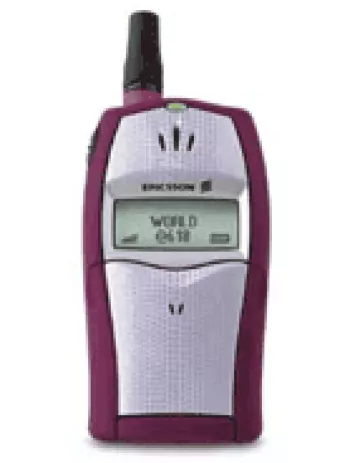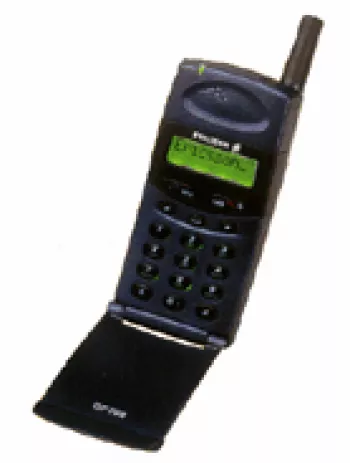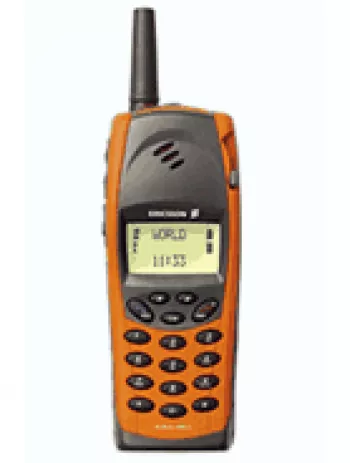
Introduction to Ericsson T20e
The Ericsson T20e, launched in 2001, is a device that stands as a part of mobile phone history, representing the shift from mere communication tools to multifunctional devices. As part of the feature phone era, it was designed to cater to basic communication needs while incorporating a few additional features that were innovative at the time. The T20e marks an evolution in design and technology in a pre-smartphone world.
Design and Build
The design of the Ericsson T20e is reflective of early 2000s aesthetics, featuring a robust build with a focus on durability. The dimensions, 101 x 54 x 28 mm, contribute to a compact form factor, making it easy to handle and carry. Weighing in at 128 g, it maintains a solid feel without being overly burdensome. Its plastic chassis was available in a variety of colors including Purple Wild, Blue Whirl, Lime Twist, Silver Weave, and Beige Harmony, providing users with some degree of personalization.
Display Characteristics
The Ericsson T20e's display is a monochrome graphic screen, a common choice for phones of that era. Its resolution stands at 101 x 33 pixels, supporting up to 3 x 12 characters. Although not comparable to modern-day displays, it served its purpose for simple text and basic interface graphics. The nature of the monochrome screen helped in extending battery life—a valuable feature during the early 2000s when battery technology was still in its nascent stages.
Network and Connectivity
Designed to operate on GSM technology, the Ericsson T20e supported GSM 900/1800 bands, providing decent coverage for voice communication. However, features like GPRS and EDGE were missing, which means the device was limited to basic calling and SMS functionalities with no data capability. Bluetooth, WLAN, and USB connectivity were also absent, reflecting the technological constraints and user expectations of that time.
Software and Interface
Running on proprietary software, the T20e was equipped with essential features like SMS messaging, a clock, and an alarm. The interface supported up to 24 languages, catering to a broad range of users worldwide. Additionally, the phone included a WAP browser with added security, an advanced feature for that period despite being quite limited by modern standards. The lack of Java support meant no additional apps could be installed, keeping usability to predefined functions.
Battery Performance
Powered by a removable NiMH battery, the Ericsson T20e provided users with up to 200 hours of standby time and 10 hours of talk time. The ability to remove the battery was a significant advantage, allowing users to swap batteries for extended usage without needing to charge the device—a key consideration in an era when charging facilities were not as widespread as today.
Sound and Alert Functionality
The T20e's sound capabilities were basic yet functional. It supported downloadable monophonic ringtones and came with a composer for creating custom ringtones. Absent a loudspeaker and 3.5mm jack, audio experiences were limited, focusing largely on alert functionalities necessary for communication rather than entertainment.
Games and Entertainment
While the primary focus of the Ericsson T20e was communication, it also included five built-in games to provide a degree of entertainment. These games, simple by today's standards, offered distraction and leisure, showcasing how mobile phones were beginning to expand their roles beyond utilitarian functions.
Release and Market Impact
Announced in 2001 and now discontinued, the Ericsson T20e is part of the transitional era bridging older communication tools with modern smartphones. Its features reflect both the technological advancements of its time and the limitations that existed before smartphones became ubiquitous. In its day, it served as a reliable and durable choice for users seeking a mobile communication device with a hint of flair.
Conclusion
The Ericsson T20e represents a slice of mobile history, embodying both the limitations and achievements of its era. It highlights how far mobile technology has come from simple feature phones to the multifunctional smartphones we rely on today. While the T20e might be seen as an antique by current standards, it served a crucial role in setting the stage for more advanced devices that followed.
Key Features of Ericsson T20e
- GSM Technology supporting 2G bands (GSM 900 / 1800).
- Compact dimensions: 101 x 54 x 28 mm (3.98 x 2.13 x 1.10 in).
- Lightweight at 128 g (4.52 oz).
- Monochrome graphic display with a resolution of 101 x 33 pixels, displaying 3 x 12 characters.
- Downloadable monophonic ringtones and a vibration alert option.
- WAP browser with added security for basic internet browsing.
- Supports SMS messaging.
- 5 pre-installed games for entertainment.
- Multi-language support with 24 languages.
- Removable NiMH battery providing up to 200 hours of standby time and 10 hours of talk time.
- Available in five color options: Purple Wild, Blue Whirl, Lime Twist, Silver Weave, and Beige Harmony.
Ericsson T20e Key Disadvantages
- Lacks GPRS and EDGE support, limiting internet connectivity.
- Monochrome graphic display with low resolution (101 x 33 pixels).
- No camera functionality.
- No loudspeaker or 3.5mm headphone jack for audio.
- Limited memory features; no card slot for expandable storage.
- Minimal call records capability (only 10 received, dialed, and missed calls).
- No support for Bluetooth or any wireless communication like WLAN.
- No positioning services or radio functionalities.
- Only supports SMS for messaging; no advanced texting features.
- No support for Java applications or enhanced feature services.
View Also
More Phones
All Rights Reserved +14266 Phones © Mobilawy 2025

























